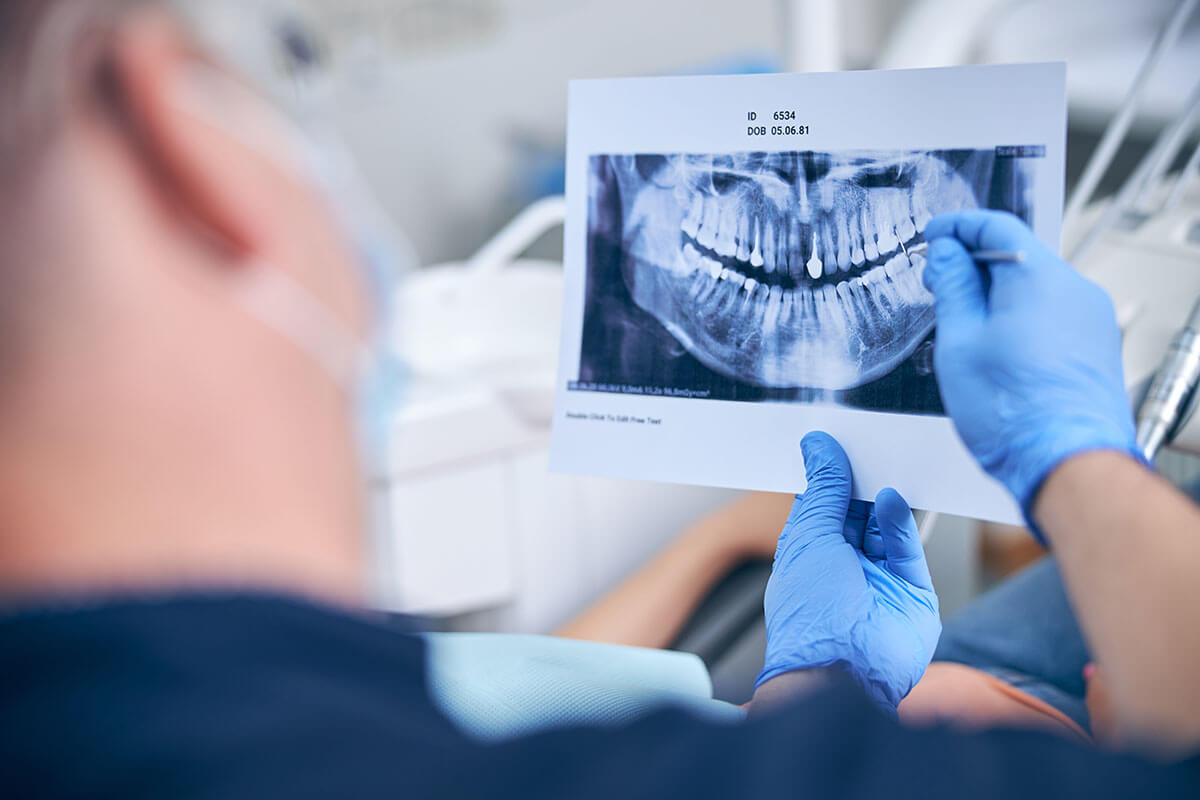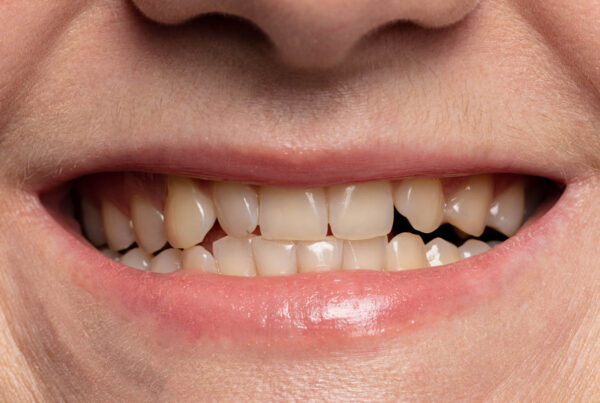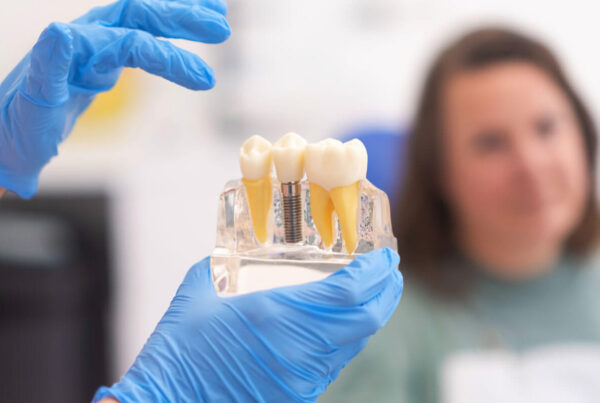The temporomandibular (tem-puh-roe-man-DIB-u-lur) joint, commonly known as TMJ, is the joint connecting your jawbone to your skull.
You have one joint on each side of your jaw.

Sometimes, people have issues with their TMJ, and those issues are categorized as TMD – temporomandibular joint disorder.
TMD presents itself in different ways and can be caused by many different things. Often, TMD is experienced as pain in the jaw especially when opening and closing the mouth. It can be hard to determine the exact cause of TMD, but a lot of times, it’s due to chronic, long-term teeth grinding or clenching. It can also be caused by genetics, arthritis or a jaw injury.
Because of the complexity of the joint, it can be difficult to diagnose and treat TMJ disorders. Our dentists at Dentistry at 1818 Market Street are up for the challenge.
Signs and symptoms of TMJ disorders may include:
- Pain or tenderness of your jaw
- Pain in one or both of the temporomandibular joints
- Aching pain in and around your ear
- Difficulty chewing or pain while chewing
- Aching facial pain
- Locking of the joint, making it difficult to open or close your mouth
- Clicking, popping or grating sounds in the jaw joint when you open or close your mouth

Some less common signs that you could be experiencing problems with TMJ are pain or tenderness anywhere in the general are of your jaw, including your neck and shoulders and around your ears.
You could feel pain in your face, or even just a tired feeling in your face. You may also have toothaches, headaches, neck aches, dizziness, earaches, hearing problems, upper shoulder pain, and ringing in the ears (tinnitus).
If you are suffering from migraines, it’s possible they could be caused by problems with your jaw and TMJ.
But if there’s no pain or limitation of movement associated with your issues, you probably don’t need treatment for a TMJ disorder.
To figure out what’s causing your symptoms, the dentist will ask about your health history and conduct a physical exam.
They’ll check your jaw joints for pain or tenderness and listen for clicks, pops, or other sounds when you move them. They’ll also make sure your jaw works like it should and doesn’t lock when you open or close your mouth. Plus they’ll test your bite and check for problems with your facial muscles.
Your dentist may take full face X-rays so they can view your jaws, temporomandibular joints, and teeth to rule out other problems. They may need to do other tests, like magnetic resonance imaging (MRI) or computer tomography (CT).
Our Center City, Philadelphia dentists are experienced in diagnosing and treating all types of TMJ disorders. We view surgery as a last resort and have other proven techniques we use to treat TMD. Sometimes simple changes can help, like eating only soft foods and no longer chewing gum. Because it can be hard to stop clenching our jaw or grinding our teeth, there are dental appliances that we can recommend for TMD pain relief, like a night guard. We will also go over stretches and facial massage that can help your TMJ function properly.
TMJ disorders are common. A lot of cases are minor, not causing much discomfort and sometimes only last a few months. In some cases, though, TMD can be serious and long-lasting.
If you have pain in your face or jaw, or if you have been long-suffering from migraine headaches without relief, schedule your appointment to see one of our dentists specializing in TMJ disorders.




